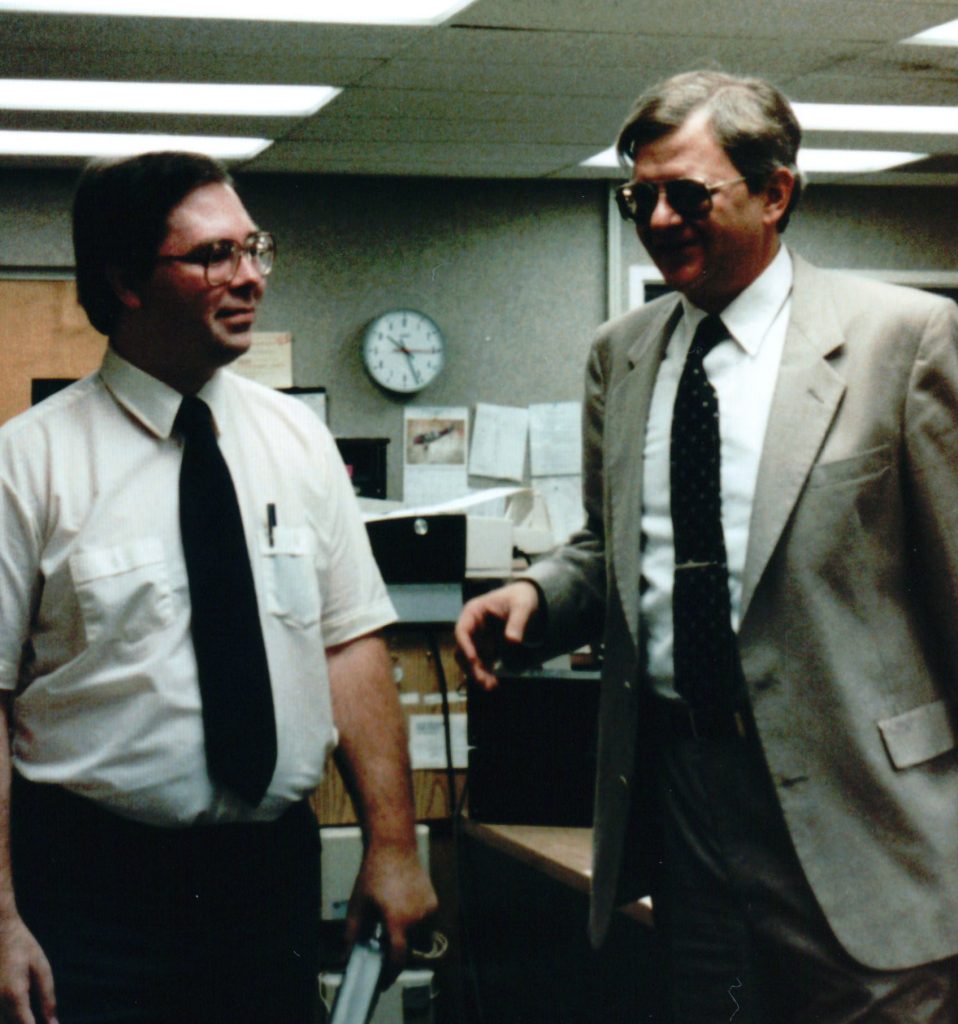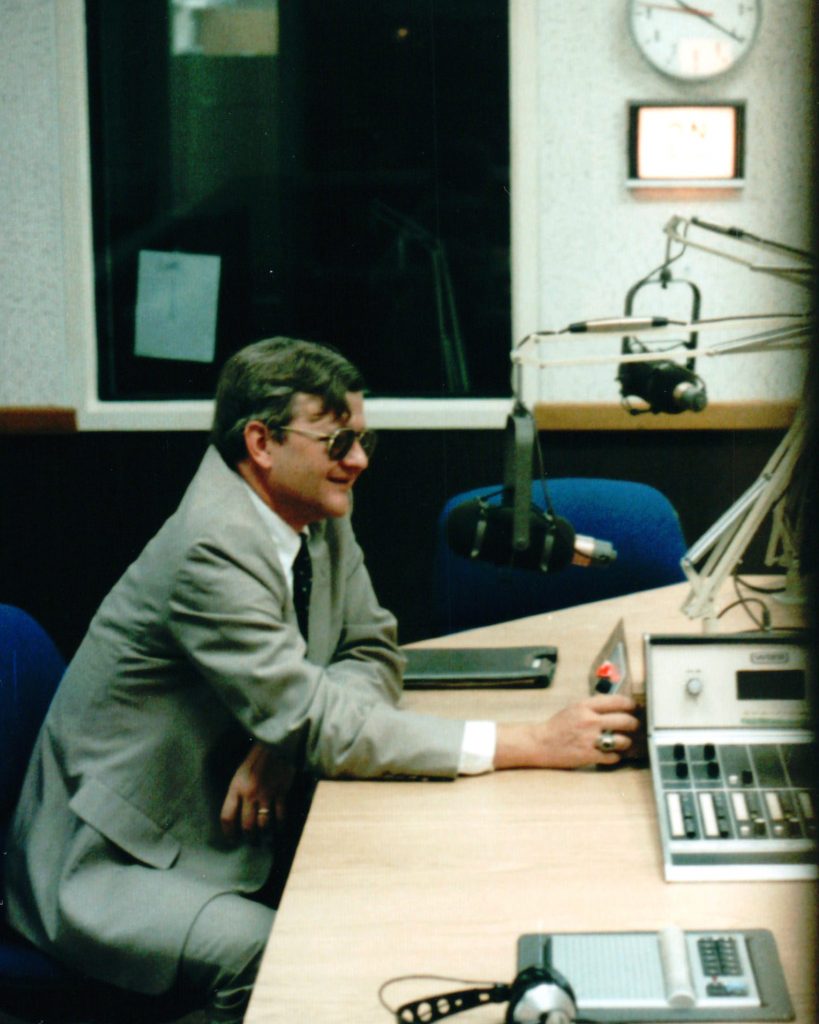He was an obscure insurance agent in rural Maryland, who wrote a Cold War-era thriller that caught the attention of then-President Ronald Reagan.
“The Hunt for Red October” took off, and launched its author, Tom Clancy, on a career that made him a household name.
The first of my nine interviews with Tom Clancy took place in the summer of 1987, when being a bestselling author was still a bit new and exciting to him.
“Fundamentally, you write .. most writers, I think, really write for themselves. I write the kind of book that I like to read. I turn out the very best product that I know how to turn out, and if other people like it, fine. But mainly I have to please myself. The only review that really matters is when one citizen coughs up nineteen dollars and 95 cents and buys the book.”

Tom Clancy is one of the two or three authors people always ask me if I’ve ever interviewed.,Our talk that day in 1987 about “Patriot Games,” his third book, was my introduction to a man who was already being pigeonholed as a particular kind of author, one who could write convincingly about high-tech weaponry, perhaps, but not so much about people. Clancy bristled a bit when I brought it up.
“Now, when you’re writing about submarines or airplanes, you have to describe what those people do for a living, and what those people do for a living is to use technology as a tool to further their mission. And in this particular case, there’s no such thing as a high tech machine gun, so I describe the machine gun the way it is, and go on from there. But, really, people make too much of this technological stuff. All writing is about people, not machines. Machines are just tools.”
Tom Clancy always took pride in the authoritativeness of his secret sources, the people in-the-know who he said were more than happy to assist him in getting not just the technical details right, but the political and human details, too.
“I’ve interviewed people at the top of intelligence and security agencies from more than one country. I’ve come to the conclusion these people believe what they say, and the reason I came to that conclusion is quite simple: I don’t think a man or woman will risk his or her life for something he or she does not believe in.

“And these people are not .. you’re not an FBI agent for the money. You’re not a CIA officer for the money. You’re in that business because you happen to believe in it. If you wanted to make money, you could sell real estate and do better. People with the degree of intelligence that these guys have could do quite well in the ‘real world’ — they don’t have to be where they are. I have to believe that they do it because they believe in it, just as a fireman runs into a burning building because he believes that what he’s doing has value.”
BT: This being your third book, do you still have people come up to you and say, ‘Who’s this character, really?’
“I get that all the time. People just don’t want to believe that an ordinary country insurance agent can get the kind of information I get. In a way, it’s amusing, and in another way it’s annoying, ’cause the information’s all out there, you just have to know where to look for it. That’s the amusing part — the annoying part is a lot of people think that I was given this information, or people have been giving me classified data of one kind or another for some years. Well, the fact of the matter is, that’s not true — I have never been exposed to classified material, to the best of my knowledge. And why can’t people just give me credit for being intelligent?”
BT: Please set modesty aside for a moment and tell me, what you have that other writers don’t.
“I have no idea, except maybe a lot of luck. I sit down and plug my words together, uh, and I try to tell a story. Now, whether I do that better or worse than anyone else is for the public to judge, not for me. I do the very best I can, and if people like it, so much the better.”
BT: Why do you like to write?
“Because it’s fun! It’s also terrible. It’s an interesting dichotomy. Sometimes it’s like digging a hole in the dirt, and other times it’s like driving a sports car. Sometimes it goes very well, sometimes it does not go so well. Writing is the only way I know that you can create your own little world and run it the way you want. It’s kind of like being God, in that respect. Fundamentally, writing is the most enjoyable activity I’ve ever come across. In retrospect, you even enjoy the bad parts. But I do not have the ability to express how much fun it is, to write a book.”
BT: What do you do to celebrate, when you finish a book?
“I take the family to Disney World. I do that for several reasons — first of all, because I like going there myself, and I would go there even if I didn’t have four kids. And secondly, sort of to reward the kids for taking good care of me, because in the last month before deadline, I’m usually not a terribly nice person to be around.”
In later years, it became, frankly, more difficult to interview Tom Clancy, as he became more impatient with my questions, a bit condescending in his answers, and generally more irascible.
Maybe at that point he’d stopped going to Disney World?